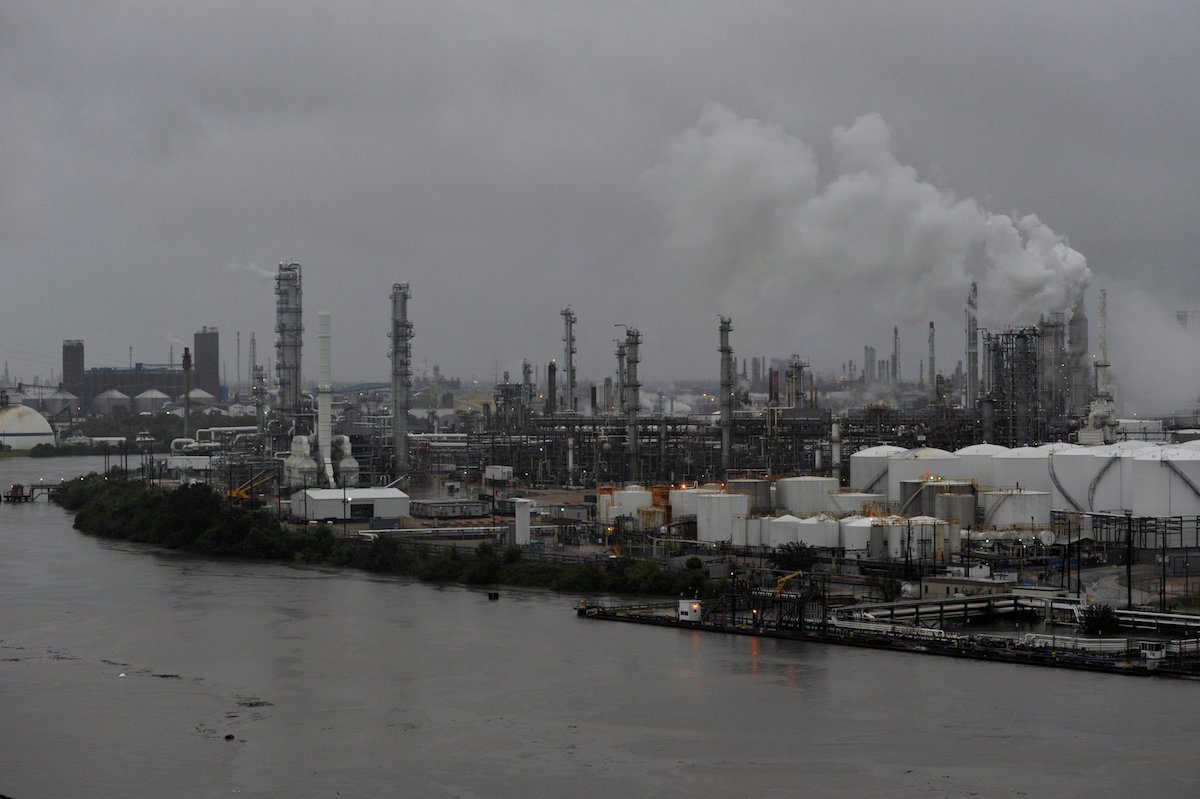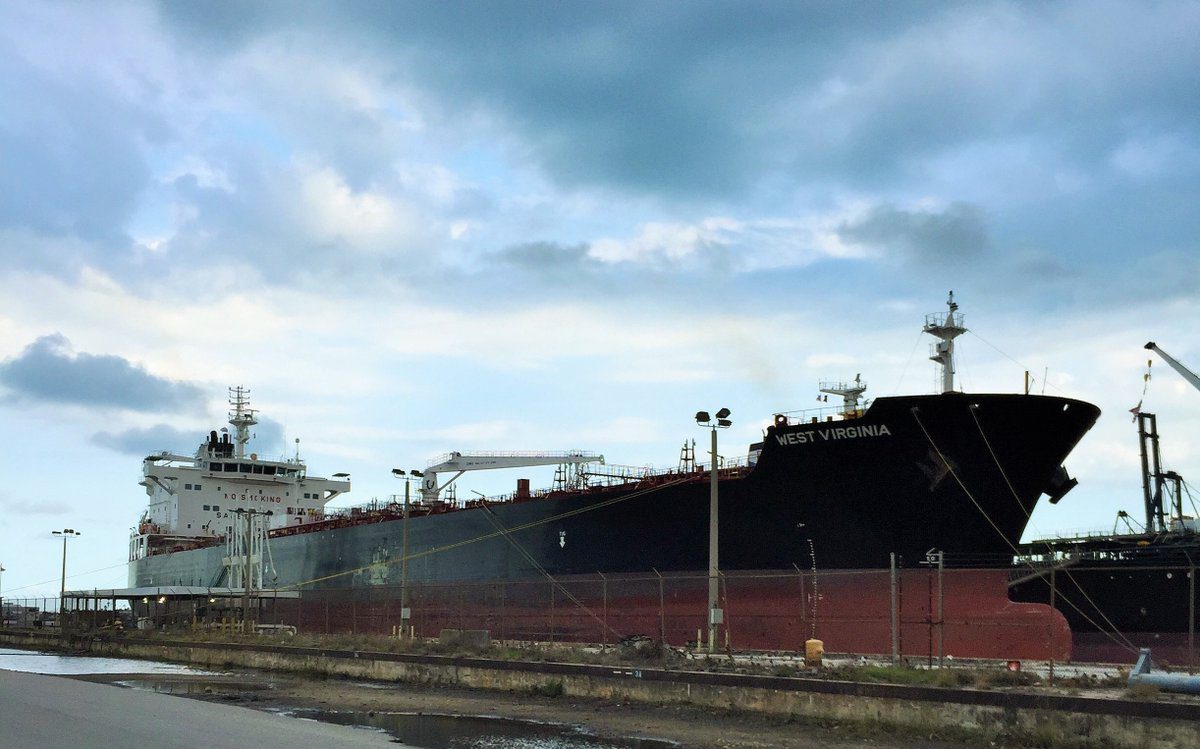The Valero Houston Refinery is threatened by the swelling waters of the Buffalo Bayou after Hurricane Harvey inundated the Texas Gulf coast with rain, in Houston, Texas, U.S. August 27, 2017. REUTERS/Nick Oxford
 By Catherine Ngai and Marianna Parraga NEW YORK/HOUSTON, Aug 29 (Reuters) – Oil traders were scrambling on Tuesday to move crude and fuel supplies through ports in Louisiana as Tropical Storm Harvey barreled toward the state, threatening to close the last major oil terminals still operating on the U.S. Gulf Coast.
By Catherine Ngai and Marianna Parraga NEW YORK/HOUSTON, Aug 29 (Reuters) – Oil traders were scrambling on Tuesday to move crude and fuel supplies through ports in Louisiana as Tropical Storm Harvey barreled toward the state, threatening to close the last major oil terminals still operating on the U.S. Gulf Coast.
Harvey pummeled the heart of the U.S. energy industry in Texas, dumping a record amount of rain and triggering catastrophic flooding in Houston. Harvey was the strongest storm to hit the state in more than 50 years, forcing operators to shut refineries, pipelines and ports.
Click here for port update
Harvey was forecast to come ashore in western Louisiana near the Texas border on Wednesday. The region includes the St. James trading hub, with more than 2.5 million barrels per day (bpd) of refining capacity. It is also home of the Louisiana Offshore Oil Port, the largest privately owned U.S. crude storage terminal.
Louisiana had become the last exit and entry point into refinery row on the U.S. Gulf Coast. Its ports import and export millions of barrels per day (bpd) of crude and fuel. Texas and Louisiana are home to 45 percent of total U.S. refining capacity.
“Louisiana is open and being used as much as possible to discharge fuel and load exports,” a trader at a refinery said.
Other traders also said they were hurrying to take advantage of the closing window to import fuel into the U.S. Gulf as prices skyrocket. Prices in the region have risen as supply falls due to refinery closures.
According to Eikon shipping data, the Ridgebury Julia, a tanker carrying oil products, was diverted earlier this week. It was originally going to Corpus Christi, Texas. As of Tuesday, it changed its destination to New Orleans.
Buyers for Latin America, where many countries are heavily reliant on U.S. supplies, are trying to buy cargoes. Asian refiners are also keen to buy U.S. cargoes and concerned about delays to those they have already bought, shipping sources said.
The window for shipping is closing as conditions deteriorate and Harvey moves east toward refineries and ports in the state.
The prices in spot markets for gasoline in the Gulf have soared above benchmark prices in New York Harbor, according to Reuters data.
U.S. crude prices have fallen because refiners are processing less oil. That has pushed U.S. crude prices below prices for crude elsewhere, making it cheap for international refiners if they can still get a cargo out.
U.S. crude’s discount to London’s Brent futures
The Houston Ship Channel was shut, and the Port of Houston will remain closed on Wednesday.
The backlog in unexported refined products will be a challenge to Texas Gulf Coast refiners, according to Sandy Fielden, an analyst at Morningstar.
Damage to roads and fuel stations may delay some refinery restarts, he said, because they would quickly run out of storage of fuel produced. (Editing by Simon Webb and David Gregorio)
(c) Copyright Thomson Reuters 2017.
Editorial Standards · Corrections · About gCaptain
This article contains reporting from Reuters, published under license.

 Join The Club
Join The Club











